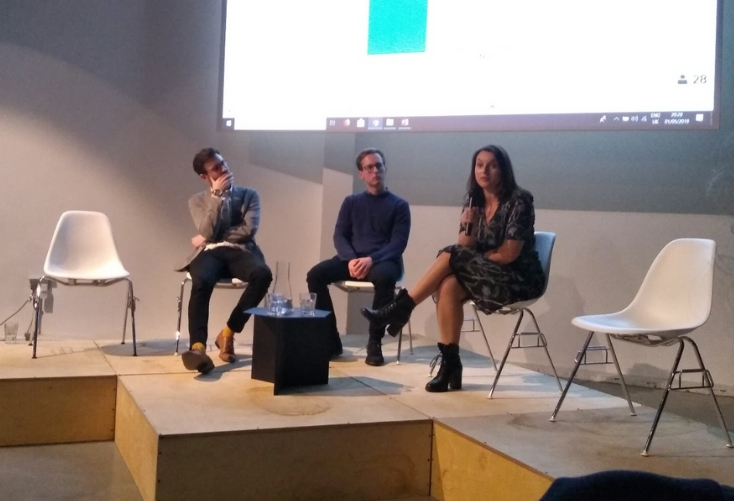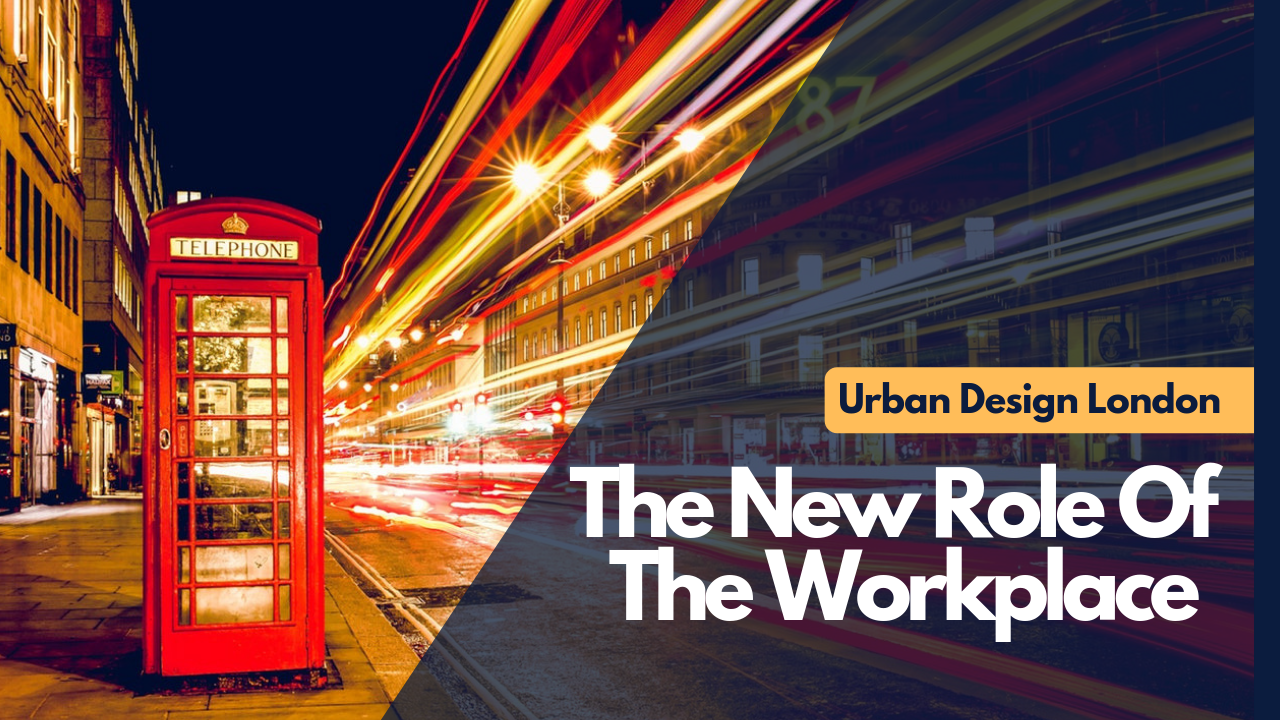- Highlights from the Urban Design London Young Practitioners Network event, ‘Working in the 21st Century City’.
- A key topic was inclusivity, and the need to invest in workspaces in suburban and urban areas that are both accessible and inclusive.
- Other hot topics included community as a tool to attract talent, and the growing importance of wellbeing in the workplace.
Allwork.Space recently had the privilege of attending the Urban Design London Young Practitioners Network event, ‘Working in the 21st Century City’.
10 speakers working across the property and design industries were in attendance, and each took to the stage to talk about how workplaces have evolved and what they might look like in the future.
The event was located at Karakusevic Carson Architects in the Biscuit Factory, a former factory that used to be one of the largest employers in South East London. The space was recently regenerated and transformed into a collection of modern, open-plan workspaces.
It was interesting to find out that we were sitting in what was once the factory oven and packing space!
Speakers at the event included Clare Bailey, Associate Director at Savills; Ben Channon, Associate & Mental Wellbeing Ambassador at Assael Architecture; and Justyna Michalik-Minken, Head of Operations & Communications at Creative Works.
Principles of Inclusivity
One of the first topics of discussion centered around the responsibility of decision-makers and developers to invest and build workspaces in suburban and urban areas that are in need of infrastructure improvements, and the importance of making these spaces both accessible and inclusive.
Ignoring inclusivity in workspace planning and design endangers cohesion and risks creating social vacuums that cater to a narrow demographic — spaces that the local community can’t access or feel excluded from.
Of course, transport links are important in enabling access at a surface level, but the conversation quickly progressed to how workspaces can provide access to opportunities that encourage engagement with people from the local community, such as education.
Questions were also raised about how we can better integrate coworking communities with the local communities. For instance, it’s all very well having an onsite cafe, yoga etc., but would it be more beneficial in terms of community cohesion to build links with local amenities and services instead?
Attracting and Retaining Talent
The notion of the coworking space as a microcosmic community isn’t a new one. Societal structures have shifted in such a way that many people move away from family and as a result are attempting to re-establish a sense of community in other contexts such as the workplace.
Creating a community is one of the driving factors behind workspace design today, and is expected to play an even greater role moving forward as the boundaries between work and leisure continue to blur.
Regional Cities
Regional UK cities like Manchester are appealing to graduates looking for a combination of affordability and career opportunities. In fact, Manchester is noted as one of the best cities in the UK for attracting and retaining talent, with over half (51%) of students from Manchester’s universities staying on in the city after graduation.
An even greater proportion (57%) of students from Manchester who left for university return after graduating in other cities – second only to London. So, despite the focus on the London flexible workspace scene, around two thirds of the UK coworking market is located outside the capital – with many more set to open in the next few years.
Bolstering Local Economies
Linking workspaces to local economies is a rising trend. Examples in London include:
Pop Brixton
A temporary community initiative delivered in partnership with Lambeth Council that has turned disused land into a creative space for local, independent businesses. It accommodates a number of startups working in food, retail, design and social enterprise.
Peckham Levels
Another temporary project designed to provide affordable and inspiring workspace for independent businesses, artists and local entrepreneurs. The previously underused space sits inside the town centre car park and is designed to connect members with the community.
Mountview Academy
This is a pioneering initiative that merges workspace with education. As well as containing space for performing arts businesses, Mountview acts primarily as a performing arts school and a community space for people in Peckham and the surrounding areas.
Creative Works
This workspace in Walthamstow is another coworking project on a mission to forge and grow relationships with local businesses. One way it does this is by running free talent incubator workshops for members in practical matters like accounting as well as more specialised digital subjects. Members also have the opportunity to work with digital creative apprentices from Big Creative Education (BCE).

Wellbeing in the Workplace
Businesses lose £40 billion per year due to poor wellbeing, so the fact that this remains a hot topic for discussion and debate is no surprise. Coworking spaces are encouraging better employee wellbeing through design: large windows, ergonomic furniture and giving people autonomy over where they work within the space, are all popular tropes.
There was an interesting debate among attendees over the concept of the four-day week and whether or not it should be implemented on a wider scale. Interestingly, someone whose previous company decided to try a four day week commented that it worked well initially in terms of productivity levels, but as it became the new norm, employees slipped back into their old ways.
WELL was mentioned as a useful tool for advancing health and wellbeing in buildings globally. Interested parties can register their office, building or other space type with the programme and leverage a framework for improving health and human experience through design.
As ever, we’d love to know your thoughts on any of the talking points above. Are you a fan of the four day week, are you running a socially-minded coworking startup, or do you think workspace operators have a responsibility to support the local community?
Join the conversation on Twitter @Allwork_space.

















